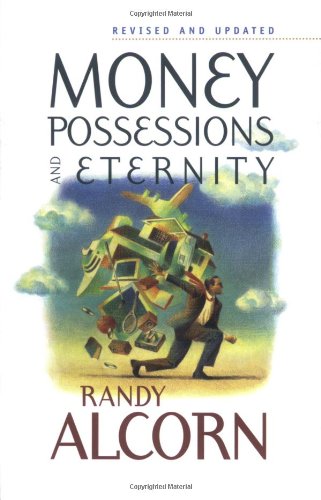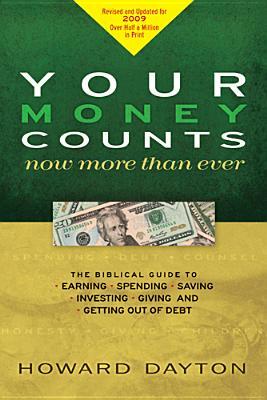As you consider ways to use your treasure wisely, begin by reviewing the following video and brief article by Howard Dayton, the founder of Compass (Source).
“4 Reasons It Is More Blessed To Give Than Receive”
Gifts obviously benefit the recipient. The church continues its ministry, the hungry are fed, and missionaries are sent. But from God’s point of view generosity is more important for the giver than the recipient. “Remember the words of the Lord Jesus, that He Himself said, ‘It is more blessed to give than to receive’” (Acts 20:35).
The Giver Will Benefit in 4 Ways-
1. An increase in intimacy
Above all else, giving draws our heart to Christ. Matthew 6:21 says, “For where your treasure is, there your heart will be also.” When you give to Christ and His work as a way of expressing your love for Him, it draws your heart closer to Him. And nothing on this planet is more important that knowing Jesus well.
2. An increase in character
Our heavenly Father wants us to conform to the image of His Son. The character of Christ is that of an unselfish giver. Unfortunately, humans are selfish by nature. One way we become conformed to Christ is by regular giving. Someone once said, “Giving is not God’s way of raising money; it is God’s way of raising people into the likeness of His Son.”
3. An increase in heaven
Matthew 6:20 reads, “Store up for yourselves treasures in heaven, where neither moth nor rust destroys, and where thieves do not break in or steal.” The Lord tells us that heaven has its own “First National Bank,” where we can invest for eternity.
Paul wrote, “Not that I seek the gift itself, but I seek for the profit which increases to your account” (Philippians 4:17). Each of us has an account in heaven that we will be able to enjoy for eternity. And although we “can’t take it with us when we die,” we can make deposits to our heavenly account before we die.
4. An increase on earth
Many people have a hard time believing that giving can result in material blessings flowing back to the giver. However, we encounter that very principle in the pages of Scripture. Consider Proverbs 11:24-25: “There is one who scatters, and yet increases all the more, and there is one who withholds what is justly due, and yet it results only in want. The generous man will be prosperous, and he who waters will himself be watered.”
One reason the Lord reveals that we can anticipate such an increase is because He wants us to recognize that He is behind it. God has chosen to be invisible, but He wants us to experience His reality.
When we give, we should do so with a sense of expectation—anticipating an increase from the Lord even though we have no idea how or when He may choose to provide it. Our experience has shown Him to be very creative! Remember, givers experience the advantages of giving only when they give cheerfully and with love—not when the motive is just to get.
—–
Several times in Scripture, generosity is used to determine the status of the heart. Read the following verses that explain how giving can reveal deeper issues (Source):
TEST OF FAITH
What use is it, my brethren, if a man says he has faith, but he has no works? Can that faith save him? If a brother or sister is without clothing and in need of daily food, and one of you says to them, “Go in peace, be warmed and be filled,” and yet you do not give them what is necessary for their body, what use is that? Even so faith, if it has no works, is dead, being by itself (James 2:14-17).
TEST OF LOVE OF GOD ABIDING IN US
But whoever has the world’s goods, and beholds his brother in need and closes his heart against him, how does the love of God abide in him? (1 John 3:17).
TEST OF LOVING OUR NEIGHBOR
I am not speaking this [a promised gift] as a command, but as proving . . . the sincerity of your love also (2 Corinthians 8:8).
But a certain Samaritan, who was on a journey, came upon him; and when he saw him, he felt compassion, and came to him, and bandaged up his wounds, pouring oil and wine on them; and he put him on his own beast, and brought him to an inn, and took care of him. And on the next day he took out two denarii and gave them to the innkeeper and said, ‘Take care of him; and whatever more you spend, when I return, I will repay you’ (Luke 10:33-35).
TEST OF LORDSHIP
Jesus said to him, “If you wish to be complete, go and sell your possessions and give to the poor, and you shall have treasure in heaven; and come, follow Me.” But when the young man heard this statement, he went away grieved; for he was one who owned much property (Matthew 19:21-22).
Jesus felt a love for him, and said to him, “One thing you lack: go and sell all you possess, and give to the poor, and you shall have treasure in heaven; and come, follow Me.” But at these words his face fell, and he went away grieved, for he was one who owned much property (Mark 10:21-22)
And when Jesus heard this, He said to him, “One thing you still lack; sell all that you possess, and distribute it to the poor, and you shall have treasure in heaven; and come, follow Me” (Luke 18:22-23).
—-
Scripture is also clear when it emphasizes the importance of our attitude when we give (Source).
“Our Attitude in Giving”
God’s attitude in giving is summed up in John 3:16: “For God so loved the world, that he gave his one and only son.” Note the sequence. Because God loved, he gave. Because God is love (1 John 4:16), he is also a giver. He set the example of giving motivated by love.
It’s also crucial for us to give with an attitude of love. The Bible says, “If I give all my possessions to feed the poor . . . but do not have love, it profits me nothing” (1 Corinthians 13:3). It is hard to imagine anything more commendable than giving everything to the poor. But if it is done without love, it is of no benefit to the giver.
In God’s economy the attitude is even more important than the amount. Jesus emphasized this point: “Woe upon you, Pharisees, and other religious leaders—hypocrites! For you tithe [give 10 percent] down to the last mint leaf in your garden, but ignore the important things—justice, mercy and faith (Matthew 23:23).
The religious leaders had been careful to give precisely the correct amount. Yet, in spite of this, Christ rebuked them because of their attitude. For giving to be of any value, it must be done from a heart of love.
The only way we can consistently give out of love is to give our gifts to the Lord himself. If giving is merely to a church, a ministry, or a needy person, it is only charity. But giving to God becomes an act of worship. Because he is our creator, our Savior, and our faithful provider, we can express our gratefulness and love by giving to him. Whenever we give, we should remind ourselves that we are giving our gift to the Lord himself.
Stop. Examine yourself. Are you giving with an attitude of love?
—–
In the previous course, we read from Randy’s Alcorn’s The Treasure Principle, which emphasized that we cannot take any financial resources into the next life. However, he also explained that it is good and right to take care of our physical needs here on earth. With these two things in mind, it is sometimes difficult to know how much to give. Read Compass’s guide below to help answer this question (Source).
“Amount to Give”
Let’s survey what the Bible says about how much to give. Before the Old Testament Law was given there were two instances of giving with a known amount. In Genesis 14:20 Abraham gave ten percent, a tithe, of the spoils to Melchizedek after the rescue of his nephew Lot. And in Genesis 28:22, Jacob promised to give the Lord a tenth of all his possessions if God brought him safely through his journey.
Under the Old Testament Law a tithe was required. The Lord condemns the children of Israel in Malachi 3:8-9 for not tithing properly: “Will a man rob God? Yet you are robbing Me! But you say, ‘How have we robbed Thee?’ In tithes and offerings. You are cursed with a curse, for you are robbing Me, the whole nation of you!”
In addition to the tithe there were various compulsory and free-will offerings. Furthermore, the Lord made special provisions to provide for the needs of the poor: every seven years all debts were forgiven; every fifty years the land was returned to the original land-owning families; and there were special rules for harvesting that allowed the poor to glean behind the harvesters and along the edges of the fields. Ruth is an example of a needy person who gleaned in the field of Boaz.
God made another significant provision for the poor in Deuteronomy 15:7-8: “If there is a poor man with you, one of your brothers, in any of your towns in your land which the Lord your God is giving you, you shall not harden your heart, nor close your hand from your poor brother; but you shallfreely open your hand to him, and shall generously lend him sufficient for his need in whatever he lacks.” Under the law the extent of one’s giving was not limited by a fixed percentage but was in part dictated by the material needs of the surrounding people.
In the New Testament the tithe is neither specifically rejected nor specifically recommended. What is taught is giving in proportion to the material blessing one has received with special attention and commendation for sacrificial giving.
What I like about the tithe or any fixed percentage of giving is that it is systematic, and the amount of the gift is easy to compute. The danger of the tithe is that I can treat it as simply another bill to be paid, and by not having the correct attitude I do not put myself in a position to receive the blessings and advantages God has for me in giving. Another potential danger of tithing is the view that once I have tithed, I have fulfilled all my obligations to give. For many Christians, the tithe should be the beginning of their giving, not the limit of their giving.
How much should we give?
To answer this question, first give yourself to the Lord. Submit yourself to Him. Earnestly seek His will for you in this area, asking Him to help you obey Christ’s leading. In my family we are convinced that we should tithe as a minimum and then give over and above the tithe as the Lord prospers and/or directs us.
—-
If you are in a financially difficult situation, it may be tempting to put off giving until you feel more stable. Watch this video from Compass, in which Howard Dayton argues that giving should still be the priority.












